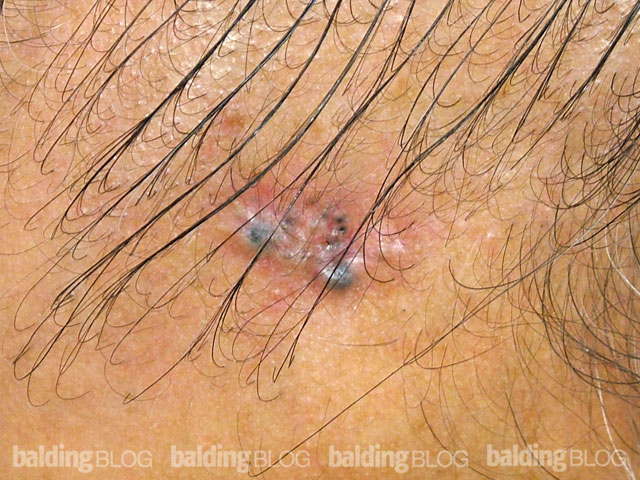What is the difference between doctors and the various medical groups performing hair transplants. There appears to be a great deal of competition and as I go between groups, I get confused and overwhelmed.
If you were looking for a good family doctor or plastic surgeon, you would most likely use certain criteria for selecting one over the other. Fundamentally, you would look for a well credentialed, caring, competent doctor who you like and feel comfortable with. Be sure that the doctor values you as a patient by spending time with you and discussing your agenda freely. Ask yourself if the doctor listened to what you were saying or lectured you about his/her ideas. That doctor must be trustworthy to take on your welfare or your family’s welfare, and not only must you believe in his/her skills, but you should also like him/her as a person. Although the various family doctors and plastic surgeons use physician’s assistants or nurse practitioners to help them manage patient’s needs, the doctor is always ultimately the person in charge, the one whose skills you will eventually depend upon. As most doctors practice in groups, you should feel comfortable with the doctors who work with your doctor in the group that you selected, as sometimes your doctor may be on vacation or off-call when you need him/her the most.
You should expect that physician extenders should be educated as physician extenders (nurses or certified physician assistants, not salesmen). Hair transplantation differs from standard family practice and cosmetic surgery procedures in that there is a team approach to performing surgery. Doing refined follicular unit transplantation takes a team of 3-6 people working together for hours, so the doctor’s team is as important as the doctor is. An old cliché says that a chain is only as strong as its weakest link, so the skills of the doctor as one link of that chain can easily be offset by inexperienced technicians in the surgical team or sloppy processes that are not put together carefully and not focused on the many detailed nuances that produce quality hair transplants. You should feel confidence in the doctor and the team and you should feel ‘integrity’ and trust in soul of that doctor.
In my hair restoration practice, I add many elements to build confidence and establish trust. I have an open practice, where new, potential patients can meet completed hair transplanted patients one-on-one. This offers the opportunity for new patients to probe the process and see up front what they will be getting if we perform the surgery. I focus heavily on patient education, not only by providing copies of some of the important medical articles I have written, but also in spending time with each potential patient (doctor and patient in a private room without a salesman). Then after the visit, I provide a detailed letter summarizing what I learned about the patient’s objectives, and a written Master Plan for what I think will happen to that patient. Fees are openly discussed by the doctor and quotes for surgical fees are put into writing. By far, most of our patients do not have surgery and can be spared surgery with appropriate medications.
NHI is unique in that we have a fully accredited surgical center where all of our surgeries are performed, ensuring safety for patients to the highest national standard. Our surgical center is audited regularly for following hospital quality processes and procedure. Very few (if any) hair transplant facilities adhere to such rigorous standards. Why is that important? Well, it is the patient’s assurance that our sense of quality is judged against the best healthcare facilities in the nation. When you select a medical group for your hair transplant procedure, you should not only know the facility, the staff competence, and longevity of that staff, but also the history of the doctor. Has the doctor been disciplined before the medical board for infractions in any form of conduct? What does the public and his colleagues think about the doctor (available through internet sources)? What is the doctor’s malpractice record? Have you met or spoken to his/her former patients, and if so, what do they tell you about their research prior to taking on this doctor as their doctor-of-choice?
I always tell my patients (and have written on this blog many times before) that there is good news and bad news for the hair transplant patient — simply put, hair transplants are absolutely permanent. Getting it done right the first time is far easier that trying to fix what might not be fixable if it is done wrong. By following this selection process, finding a good doctor should not be difficult. There are many good doctors out there, just be careful not to end up in the wrong place.
Tags: hair transplant, doctor, hair restoration, hairtransplant, hairloss, hair loss


 Here’s a snippet from the DVD cover of the Godfather Part III, showing Al Pacino’s aged look that you mentioned.
Here’s a snippet from the DVD cover of the Godfather Part III, showing Al Pacino’s aged look that you mentioned.

 These bald spots need to be evaluated by a good dermatologist. A fungal infection is the most common cause of such spots and there are other medical conditions that need to be evaluated as well. You don’t want to be your own doctor here.
These bald spots need to be evaluated by a good dermatologist. A fungal infection is the most common cause of such spots and there are other medical conditions that need to be evaluated as well. You don’t want to be your own doctor here.